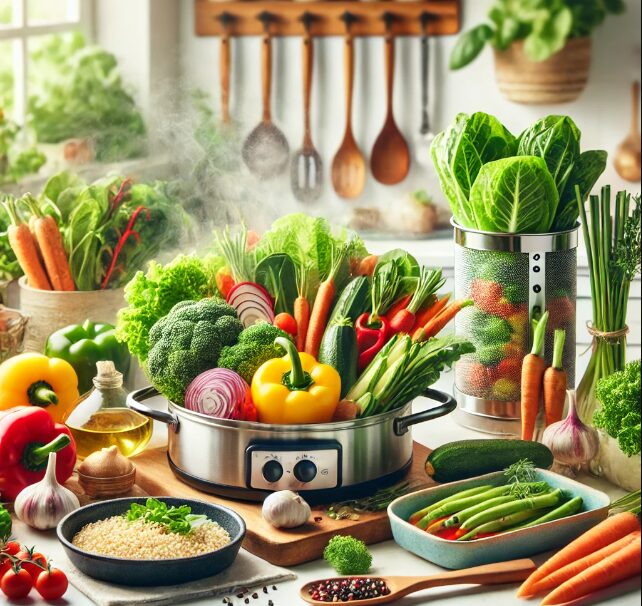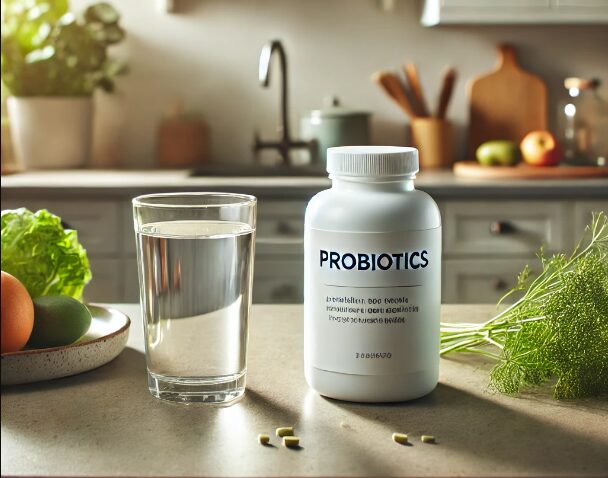Cooking can either enhance or diminish the nutritional value of your meals, depending on how you prepare your food. With the right techniques, you can preserve essential vitamins and minerals while creating delicious dishes. In this guide, we’ll explore cutting-edge strategies and timeless tips to ensure that your cooking methods help you maximize nutrient retention in every meal.
The Impact of Cooking Methods on Nutrient Retention
Choosing the right cooking method is key to preserving nutrients. Certain vitamins, like vitamin C and B vitamins, are water-soluble and can be lost during cooking, especially through boiling. Minerals and antioxidants can also degrade when exposed to excessive heat or water.
In addition to choosing the right cooking method, food preparation techniques can also impact nutrient retention. Minimizing the exposure of fruits and vegetables to air and light by storing them properly can prevent nutrient degradation. Additionally, using lower cooking temperatures and shorter cooking times can help preserve heat-sensitive vitamins. For instance, roasting vegetables at a moderate temperature instead of high heat can keep more of their nutritional value intact while enhancing their natural flavors. These practices ensure that meals are both nutrient-rich and delicious.
○ Steaming: This is one of the best methods for retaining nutrients because it limits water contact and heat exposure, preserving vitamins like vitamin C, folate, and potassium.
○ Sautéing: Lightly cooking with healthy fats like olive oil helps retain fat-soluble vitamins (A, D, E, and K) while boosting the absorption of antioxidants.
○ Blanching: A quick dip in boiling water followed by cold water can preserve vitamins, making it a great method for vegetables.
○ Grilling: While grilling can enhance flavor, avoid overcooking, as excessive charring can lead to nutrient loss and the formation of harmful compounds.
INSIDER TIPS: Want to Enhance your Intake of Essential Nutrients with the Best and Most Powerful Plant-Based Supplements?
Minimizing Heat and Water Loss
When you cook with too much heat or water, you risk losing vital nutrients. Here’s how you can counteract this:
○ Cook at Lower Temperatures: Slower, low-heat cooking helps retain vitamins and minerals that degrade at high temperatures.
○ Use Less Water: The less water used in cooking, the fewer nutrients you lose. Try steaming or stir-frying instead of boiling.
○ Cover Your Pans: Using lids while cooking can create a steam environment, preventing water-soluble vitamins from escaping.
○ Use the Cooking Water: If you do boil foods, save the nutrient-rich water to use in soups or broths.
Optimize Nutrient Retention with the Right Fats
Certain fats can actually help boost the absorption of fat-soluble vitamins and antioxidants:
○ Pair Vegetables with Healthy Fats: Adding olive oil, avocado, or nuts to your salad or sautéed veggies increases the bioavailability of nutrients like beta-carotene and lycopene.
○ Avoid Overheating Oils: Some oils, like olive oil, break down at high temperatures. Instead, opt for oils with a higher smoke point like avocado oil for frying.
INSIDER TIPS: Want to Enhance your Intake of Essential Nutrients with the Best and Most Powerful Plant-Based Supplements?
Food Preparation Techniques to Maximize Nutrient Density
How you handle food before cooking can have a big impact on nutrient retention:
○ Chop Vegetables Right Before Cooking: Cutting vegetables increases exposure to oxygen, which can degrade certain nutrients. Prepare them just before cooking to minimize this.
○ Marinating: Using acidic marinades (with lemon juice or vinegar) can help retain the vitamin content of meats and vegetables.
○ Preserve with Proper Storage: Keep fresh produce stored in cool, dry places to avoid nutrient loss before cooking.
Top Ingredients for Nutrient-Dense Cooking
To get the most from your meals, focus on using whole, unprocessed foods that are naturally rich in nutrients:
○ Leafy Greens: Vegetables like spinach, kale, and Swiss chard are packed with vitamins A, C, and K. Lightly steam or sauté them to retain their nutritional punch.
○ Colorful Vegetables: Brightly colored vegetables like peppers, carrots, and tomatoes are rich in antioxidants. Roasting or grilling these can intensify their flavors while preserving nutrients.
○ Legumes and Beans: These are rich in fiber, protein, and minerals. Soaking them before cooking helps improve digestibility and nutrient absorption.
○ Whole Grains: Opt for brown rice, quinoa, and oats over refined grains. These whole grains retain more nutrients like magnesium and B vitamins.
INSIDER TIPS: Want to Enhance your Intake of Essential Nutrients with the Best and Most Powerful Plant-Based Supplements?
How Nutrient Timing Can Boost Retention
When you eat can be just as important as how you cook:
○ Eat Freshly Cooked Meals: Nutrients can degrade over time, so it’s best to eat your meals fresh.
○ Avoid Long Storage Times: Even in the fridge, nutrients diminish over days. Freeze meals to lock in more nutrients if you plan on storing them for longer periods.
○ Combine Nutrients for Synergy: For example, eating vitamin C-rich foods with plant-based iron sources (like spinach) can help boost iron absorption.
Q&A Section
1. What is the best cooking method to preserve nutrients?
Steaming is considered the best method because it minimizes contact with water and reduces heat exposure, helping retain water-soluble vitamins like C and B-complex.
2. Does boiling food remove nutrients?
Yes, boiling can cause water-soluble vitamins like vitamin C and folate to leach into the cooking water, reducing their presence in the food.
3. How can I preserve nutrients when boiling?
Try using the cooking water in soups or sauces to retain any nutrients lost during boiling.
4. Is microwaving bad for nutrient retention?
No, microwaving is actually one of the best methods for nutrient retention since it cooks food quickly and requires minimal water.
5. How does sautéing help nutrient absorption?
Sautéing in healthy fats (like olive oil) helps the body absorb fat-soluble vitamins such as A, D, E, and K more efficiently.
6. Can freezing reduce nutrient levels in food?
Freezing helps preserve most nutrients. However, some vitamin C loss may occur over time.
7. How does cutting vegetables impact nutrients?
Cutting vegetables exposes them to oxygen, which can cause the loss of some nutrients. Chop them just before cooking to minimize this.
8. Should I cook vegetables before or after cutting them?
It’s better to cook vegetables after cutting them to reduce nutrient exposure to oxygen. This helps preserve their vitamin content.
9. What role do fats play in cooking for nutrient retention?
Fats help in the absorption of fat-soluble vitamins and antioxidants, making dishes like sautéed veggies more nutritious.
10. How can I keep more vitamins in fruits and vegetables?
Consume them raw when possible or use quick cooking methods like steaming or microwaving to preserve vitamins and minerals.
INSIDER TIPS: Want to Enhance your Intake of Essential Nutrients with the Best and Most Powerful Plant-Based Supplements?
Conclusion
Maximizing nutrient retention while cooking requires a combination of the right techniques, ingredients, and timing. By adopting these science-backed methods, you can ensure that your meals are not only delicious but packed with essential vitamins and minerals. Remember that small adjustments to your cooking habits can lead to big improvements in your overall nutrition, making every bite count toward your wellness goals.
Want to Enhance your Intake of Essential Nutrients with the Best and Most Powerful Plant-Based Supplements?
For a wider variety of plant-based nutrients, including vitamins, supplements, healthy eating, weight management, heart health, sports nutrition, and energy products, all designed to support your journey to health and well-being, please Visit: Harness the power of plants.
Recommended reading Innovative for Cookware:
“Boost Your Health: Innovative Cookware for Smarter, Healthier Cooking“(Read Time: 8 Minutes)
Recommended reading for Essential Nutrients for Adults:
“Building Stronger Immunity: Essential Nutrients for Adults“(Read Time: 5 Minutes)
You can visit the NIH for extended Knowledge and Understanding of Dietary Supplements.





[…] “Top Healthy Cooking Tips: How to Maximize Nutrient Retention in Meals“(Read Time: 6 Minutes) […]